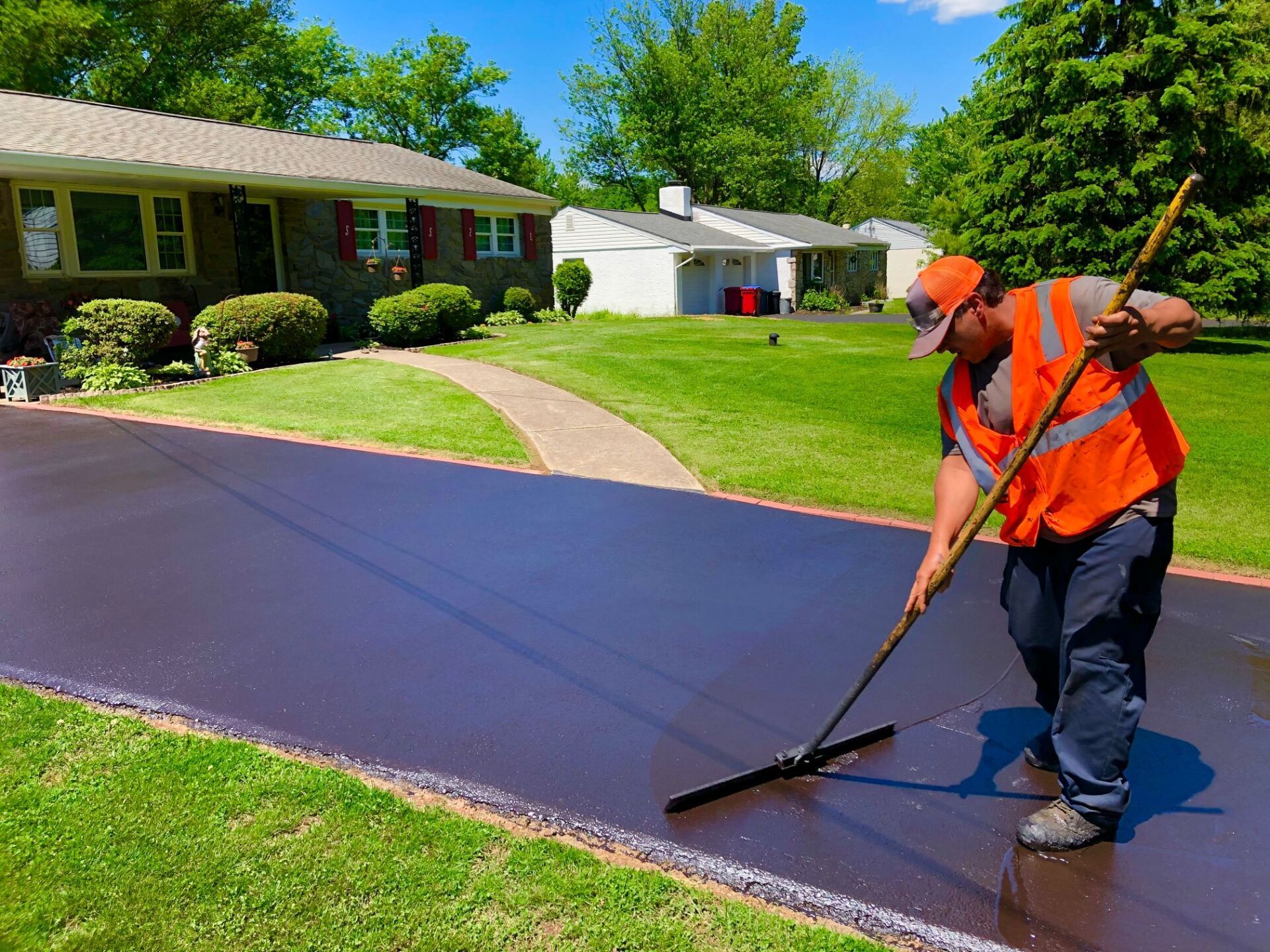Guard Surface Areas with Specialist Asphalt Sealing: Cold Mix Fundamentals
Guard Surface Areas with Specialist Asphalt Sealing: Cold Mix Fundamentals
Blog Article
Cold Mix Asphalt Vs. Hot Mix Asphalt: Which Is Right for You?

Make-up Differences
Cold mix and hot mix asphalts vary significantly in their structure, with distinctive features that affect their efficiency and applications. Cold mix asphalt is produced by emulsifying the asphalt binder with water and an emulsifying agent prior to mixing it with accumulation. This approach enables the asphalt to be convenient at reduced temperature levels, making it excellent for short-lived repairs and for use in cooler climate condition. Hot mix asphalt, on the various other hand, is made at heats, normally in between 300-350 ° F, which helps to attain better compaction and a more resilient end product. The warm mix asphalt manufacturing procedure entails warming the aggregate and asphalt binder individually before combining them at the asphalt plant.
Moreover, chilly mix asphalt has a tendency to be less thick and extra adaptable than warm mix asphalt. This adaptability makes it better suited for areas with higher degrees of activity, such as driveways or roadways with rush hour. On the other hand, warm mix asphalt is understood for its high durability and resistance to rutting and breaking, making it a preferred choice for freeways and high-traffic roadways where long life is critical.
Installment Process Variances
The process of mounting cold mix and hot mix asphalt displays remarkable variations in their procedures and requirements. In comparison, warm mix asphalt requires a more fancy installment procedure. Due to the heating requirements, warm mix asphalt setups are typically brought out by experts with customized equipment, guaranteeing a much more irreversible and structurally audio result.
Toughness and Long Life Elements
When thinking about asphalt options, resilience and durability are vital elements to evaluate for long-term sidewalk efficiency. Hot mix asphalt (HMA) is known for its exceptional longevity and longevity.
In regards to durability, HMA generally outperforms CMA as a result of its remarkable strength and resistance residential properties. HMA sidewalks have a longer life span, needing less constant repair services and maintenance, which can translate to set you back savings in the future. Additionally, HMA pavements are more conveniently customizable to fulfill particular task needs, further boosting their resilience.
Price Considerations
Taking into consideration the financial ramifications is a critical facet when reviewing the selection in between hot mix asphalt (HMA) and chilly mix asphalt (CMA) for sidewalk jobs. While the initial cost of warm mix asphalt is typically higher than that of cool mix asphalt, HMA usually gives a much more cost-efficient remedy in the lengthy run due to its exceptional toughness and durability.
In addition cold mix asphalt to product costs, it's important to consider the costs linked with setup and maintenance when contrasting HMA and CMA. Inevitably, the decision in between HMA and CMA need to take into account not just the initial expense yet also the long-term economic effects to establish the most affordable option for the particular sidewalk project.
Environmental Influence Comparison
Contrast of the ecological impacts in between hot mix asphalt (HMA) and cold mix asphalt (CMA) reveals distinctive distinctions in sustainability techniques. HMA production calls for heats, leading to increased power consumption and greenhouse gas emissions. The process likewise launches unstable organic substances (VOCs) and hazardous air toxins (HAPs) into the environment. In comparison, CMA is generated and applied at lower temperature levels, reducing energy use and exhausts substantially. The lower manufacturing temperatures of CMA cause lowered fuel intake and reduced levels of CO2 exhausts, making it a much more eco-friendly choice.
Furthermore, the use of CMA usually involves recycling existing asphalt pavement, advertising resource from this source preservation and decreasing the amount of waste sent out to garbage dumps. By opting for CMA over HMA, road building projects can add positively to ecological preservation efforts.
Verdict
Finally, the option between chilly mix asphalt (CMA) and warm mix asphalt (HMA) depends on different variables such Bonuses as structure, installment procedure, toughness, longevity, cost, and ecological influence. angle parking. While CMA uses a fast and cost-efficient remedy for minor repair work, HMA guarantees superior durability and durability for heavy traffic areas. Consider these variables meticulously to identify which sort of asphalt is the appropriate option for your paving needs

Considering the financial ramifications is an essential facet when reviewing the option between warm mix asphalt (HMA) and cold mix asphalt (CMA) for sidewalk tasks. While the initial cost of warm mix asphalt is typically greater than that of cool mix asphalt, HMA typically offers a more economical solution in the lengthy run due to its exceptional longevity and longevity. asphalt patch repair.Contrast of the ecological influences between warm mix asphalt (HMA) and cool mix asphalt (CMA) reveals distinctive distinctions in sustainability practices.In conclusion, the option between cool mix asphalt (CMA) and hot mix asphalt (HMA) depends on numerous aspects such as structure, installation process, resilience, longevity, expense, and ecological impact
Report this page